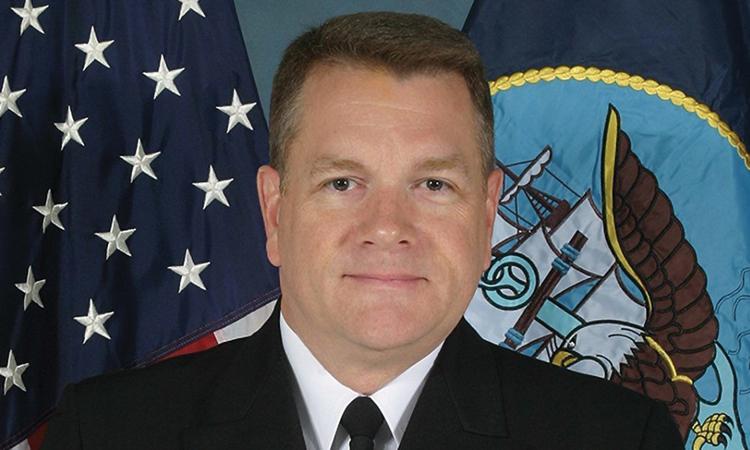A Historic Opportunity to Support Alabama’s Military Veterans
Published 8:34 am Sunday, March 31, 2024

- Ret. Rear Admiral Kent Davis
|
Getting your Trinity Audio player ready...
|
By Rear Admiral Kent Davis, USN (Ret.)
Alabama loves its military and veterans. From Redstone Arsenal to Maxwell Air Force Base, to Fort Novosel, to the Coast Guard Aviation Training Center, to the many National Guard and other military facilities around our great state, the military is a vital part of our collective heritage, economy, and national defense in Alabama. Home to approximately 400,000 military veterans, Alabama has one of the highest per capita populations of veterans in the nation.
Most of those Alabama veterans are doing great in life and actively contributing to their communities. However, the statistics used to track veterans in need of help have been getting worse in recent years.
The rates of veteran suicides are particularly troubling. Veterans in our state are twice as likely to take their own lives as the general population. In addition, veterans in Alabama are more than twice as likely to die from opioid overdoses as their civilian counterparts.
While such deaths among any of our citizens are heart-breaking, it is particularly alarming that the worsening statistics seem to be especially on the rise among younger veterans. Both the physical and mental wounds of war sometimes take years to manifest themselves, and we are sadly seeing that delayed effect play out among our veterans.
Supporting Alabama’s veterans has always been a responsibility shared between the federal government and the state. It has been heartening to see several measures taken by the federal government in recent years to boost that shared responsibility of taking care of our veterans. For example, in 2014 Congress passed the Choice Act, and in 2019 the Mission Act, both designed to give Veterans more options in healthcare. In 2022 Congress further passed the Sergeant First Class Heath Robinson Honoring Our Promise to Address Comprehensive Toxics (PACT) Act, designed to better address the healthcare needs of Veterans suffering long-term health effects from exposures to everything from Agent Orange in Vietnam to burn pits in the Middle East.
All of these Acts of Congress, eagerly signed into law by various Presidents of both parties, have helped improve, in the words of President Abraham Lincoln, the healthcare for those “who shall have borne the battle” for our nation, and for those Veterans’ dependents.
As recently as March 5, 2024, the federal VA nobly expanded the ability of veterans across the nation to enroll in VA healthcare. While all of these legal and policy developments were needed, this has understandably increased the workload of the federal VA, which may need assistance in filling the gap.
The statistics once again illustrate the danger, with wait times for VA healthcare and adjudication of disability claims now sometimes taking many months. The delays are especially troublesome when dealing with the mental healthcare of veterans, with federal VA staffs sometimes short-handed and limited in their ability to make referrals to non-VA community care providers by the overall lack of mental health providers in our state.
That is where the federal-state government partnership can assist. It was especially promising to see the March 17 announcement by Lt. Gov. Will Ainsworth and the Military Stability Foundation of its annual military bills package. Included in that package were several pro-veteran bills that could improve the lives of those who have secured the liberties and well-being of Alabamians through their service in the military. Among those Bills are two, House Bill 197 and Senate Bill 135, sponsored by Rep. Chip Brown and Sen. Andrew Jones, respectively, that would be the first of their kind in the nation to bolster the federal-state partnership in taking care of our veterans. Those two companion bills, aimed primarily at improving the mental healthcare for our veterans by establishing a statewide, integrated system, would supplement and coordinate existing federal, state and private sector healthcare programs and provide a more holistic approach to assessing and treating the unique needs of those veterans.
Addressing the mental health needs of Alabama’s veterans will require that coordinated approach among many partners. Those needs often stem from unique factors such as chronic physical pain, post-traumatic stress, traumatic brain injury, and transition challenges. These factors, which disproportionately affect the veteran community, call for tailored, unique treatments that are currently limited in our state. We do have some outstanding models of tailored programs for veterans.
The bills offered by Rep. Brown and Sen. Jones have initiated a productive conversation about the issues and their solutions. While there are concerns among some partners, my only concern is us missing a historic opportunity to support Alabama’s military veterans. I am 100% confident that these partners can work together to increase veterans’ access to care in our great state.
On March 29, we paused as Americans and Alabamians to commemorate National Vietnam Veterans Day. On April 2, the state legislature will celebrate Military Appreciation Day. In May, we dedicate an entire month to show thanks via National Military Appreciation Month. On June 6, we will honor the 80th anniversary of the D-Day landings in Normandy during World War II. By giving serious consideration to assisting our veterans through state legislation, we could properly honor those events by continuing to work together, find solutions, and advocate on behalf of America’s Finest.
Rear Admiral Davis currently serves as the Commissioner of the Alabama Department of Veterans Affairs. Born in Montgomery, he has also lived in Anniston and Millry for many years and returned permanently to his native state after retiring from several decades of service in the U.S. Army and U.S. Navy. He is a veteran of five combat zone deployments, most recently in Afghanistan. He once again lives in Montgomery with his family.





